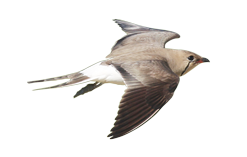Conservation Evidence
Objectives
The aim of the Conservation Evidence project is to sum up the scientific results of the effects of wetland plant management methods for conservation purposes. What measures can we take to conserve plants or restore wetland vegetation? Which management actions/methods work? Which actions/methods have never been tested out scientifically? The summaries we write need to be accessible to a wide range of users, particularly wetland managers, researchers, and the general public. We hope that they will be systematically used to make conservation decisions based on scientific results.
This project at the Tour du Valat is part of a broader project, Conservation Evidence, which is based at the University of Cambridge. The team aims to produce summaries of evidence for all kinds of species and habitats. The summaries currently available concern the conservation of amphibians, bats, birds, and forests, and sustainable agriculture in Mediterranean regions.
Actions and methodology
There are five principal steps for producing the synopsis of wetland conservation:
- Gathering scientific literature: we systematically search in scientific journals and conservation reports, search the document database already established by the Conservation Evidence project, and ask an advisory committee to recommend additional documents and reports.
- Writing summaries: we write short, simple summaries of the principal results of each article. We also write key messages that sum up the scientific results for each possible conservation action.
- Peer reviews: we ask experts to review our summaries to make sure they are accurate and complete. We also ask a panel of experts to assess each intervention, on the basis of the scientific results we have found, in terms of effectiveness, confidence level, and possible side effects.
- Publications (see below).
- Communication: we announce when summaries are finished, and more generally communicate on the importance of making conservation decisions based on scientific results. The Conservation Evidence project works in close collaboration with conservation organisations and scientific journals, attends international conferences, and has an active Twitter account.
Results
Our summaries of “what works” for wetland conservation will be available for free on the Conservation Evidence page. Although they are written in English, there is a tool on the site for translations into French!
Team
- Project leader: Patrick Grillas
- Staff involved: Nigel Taylor, François Mesléard
- Date of project: 2017-2020



